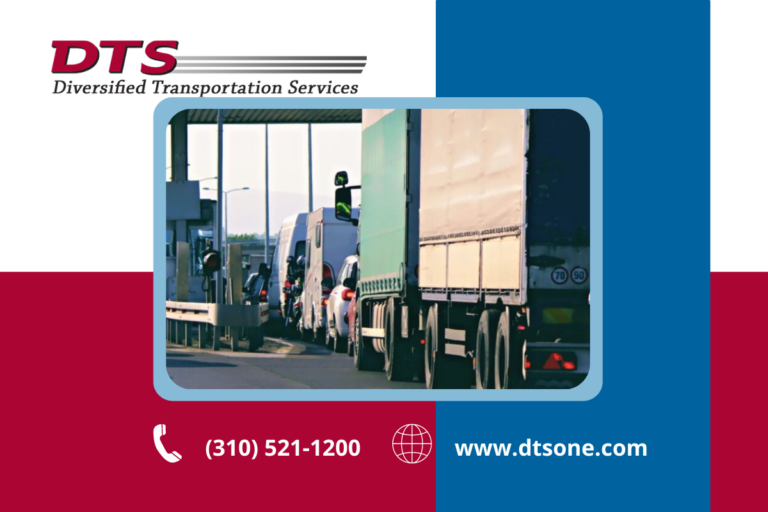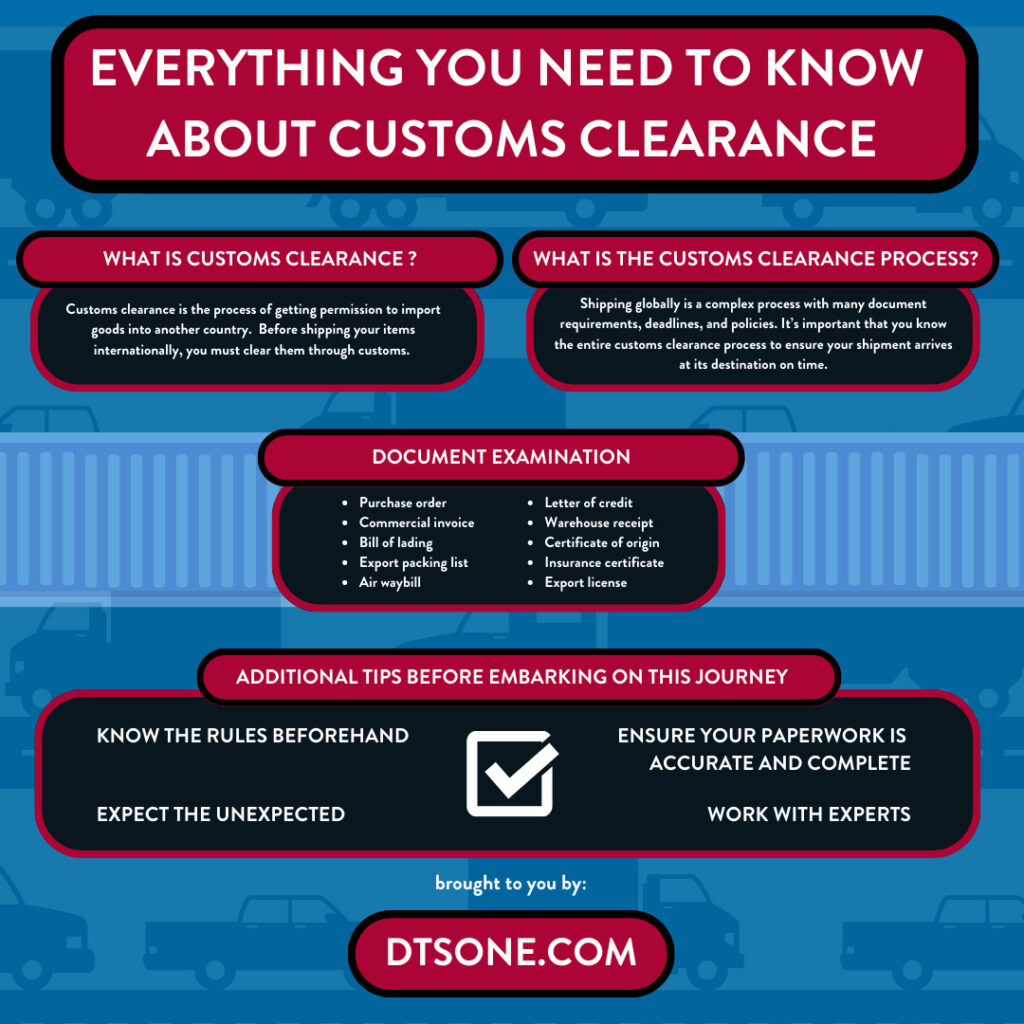
Expanding your business beyond your community or your country is a major move. However, with such a big move, it’s important that you know the customs clearance process. Your country’s customs department and the receiving country handle the rules and regulations. All parties involved will ensure the authorization of your shipment.
Before shipping your items internationally, here’s everything you need to know about customs clearance to prevent future issues.
Customs clearance is the process of getting permission to import goods into another country. Before shipping your items internationally, you must clear them through customs. Your shipment must meet the receiving country’s requirements for successful delivery to its destination.
Customs clearance is an essential procedure that ensures countries only transport authorized goods. All parties involved in this journey must follow procedures to ensure unauthorized goods aren’t entering the country and that authorized shipments arrive on time.
Shipping globally is a complex process with many document requirements, deadlines, and policies. It’s important that you know the entire customs clearance process to ensure your shipment arrives at its destination on time.
Below are the steps to take for your shipment to move through customs.
One of the most important elements of shipping globally is ensuring you have all your documents and that they’re correct and complete. These documents, especially the shipping label and commercial invoice, should be accurate with all the necessary information.
The commercial invoice is a key piece of the entire operation. Why? Because it lists the appropriate contact information for the shipper, receiver, export date, and more.
The documents you need for customs clearance are:
The import fees vary depending on what you’re shipping—i.e., the type of good, its value, and the receiving country’s regulations. Goods that exceed the minimum taxable amount determine the import duty assessments. Your choice of freight can also impact the import fee’s calculation.
If you’re shipping items that are worth beyond the tax threshold, then the customs officer will double-check to ensure pre-payment of the duty fees and taxes. You will then have two choices: shipping with Deliver Duty Unpaid (DDU) or Deliver Duty Paid (DDP)
Deliver Duty Unpaid means the receiver has yet to pay the import duties. Placement in this category results in the customs officer contacting the receiver once the goods have arrived. This placement can also include extra fees, such as handling, storage, insurance, inspection, and disbursement.
Conversely, Deliver Duty Paid means the seller pays the import taxes and duties, so the shipment can move on in the customs process. We highly recommend that you pre-pay these fees for a smoother delivery experience.
Once customs review your permits, licenses, and documents and you’ve paid all outstanding duties and taxes, they will release your shipment. Your chosen 3PL or courier service can arrange the transportation for your cargo to reach its destination. Although shipments rarely get stuck in customs, it’s important to ensure your paperwork and licenses are accurate and valid to prevent delays.
International shipping is a great way to expand your business. However, with it comes new requirements and responsibilities. Staying on top of deadlines, international policy changes and documentation requirements is necessary for your shipment’s timely delivery.
We’ve compiled a few additional tips to further your understanding of customs clearance. You can prevent shipment delays or holds by having the right information and avoiding making simple mistakes.
Shipping internationally has a few more steps than shipping within the country. Every country has customs regulations and rules to follow before releasing your shipment. Some countries require certain import licenses or documents and have different clearance processes than others.
When creating a shipping plan, it’s important to remember that your customs process can vary based on what you’re importing. Not having the documentation or licenses for the country to which you’re importing goods can also delay your shipment.
Mistakes can happen, but it’s always best to prevent them by working with experts. Shipping globally isn’t cheap or a leisure activity. It takes a lot of effort and planning to ensure these operations run smoothly. Working with a 3PL that offers DHL international shipping services can help you ensure you complete all the steps to avoid delays and other mishaps.
Shipping internationally is a complex process. Whatever authorized goods you ship must go through customs. Understanding this is valuable when planning and deciding which freight to choose. Expecting the unexpected and preparing for changes or delays is also best.
Many factors, like changing regulations or new license requirements, can affect clearance customs. Keeping up with changes can be challenging, but staying on top of them is essential. Doing so will prevent delays or cancellations in the future due to changing rules.
Your documents play a major role in the process of clearing your shipment. Having incomplete or inaccurate paperwork is a costly mistake. Even if you make the smallest mistake on your documentation, the customs department won’t clear your shipment.
Customs will hold your shipment, and you will be responsible for paying holding fees. In addition to this inconvenience, customs will be unable to release your shipment in time, delaying your entire operation. That’s why it’s crucial that you ensure your paperwork is complete and 100% accurate.
At DTS, we want to help ensure your shipment makes it to its destination. We hope our quick guide helps you understand everything you need to know about customs clearance and its processes. We also offer DHL international shipping services for those needing expedited shipping. Our seasoned staff is always ready to help. If our services interest you, don’t hesitate to contact us today for more information.

Whether you're a company looking to improve one facet of your supply chain, your entire supply chain, or simply looking for a transportation and logistics consultation, we can help.